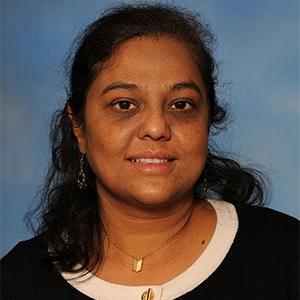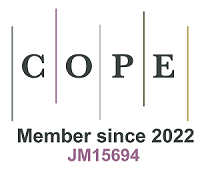EVCNA Expert Interview Series IX - Dr. Hameeda Sultana
On November 30, 2022, the Editorial Office of Extracellular Vesicles and Circulating Nucleic Acids (EVCNA) had an exclusive interview with Dr. Hameeda Sultana to discuss her current research projects in arthropod exosomes and her expectation in this field. Dr. Sultana is an Associate Professor at the College of Veterinary Medicine, University of Tennessee, USA. Her lab's novel research on arthropod-derived exosomes in mediating flavivirus transmission is highly rewarding. They have been currently identifying and characterizing the cargo and cargo sorting mechanisms in arthropod exosomes. Recently, Dr. Sultana won ATCC's 2022 Innovation Challenge for her innovative research into the function of human telomerase reverse transcriptase mesenchymal stromal cells (hTERT MSC) exosomes on flavivirus replication. During the interview, Dr. Sultana shared her research journey, ongoing projects, and progress. She also talked about the innovative research of the ATCC Challenge. Additionally, the interesting topic of arthropod exosomes was elaborated on as well. Looking ahead, Dr. Sultana talked about her prospects and gave researchers some suggestions to begin their journey in this field.
Watch the following video for expert insights from Dr. Hameeda Sultana:
Interview Questions:
Q1: Could you please share with us your career journey and how your research interests focus on vector-borne viral diseases?
Q2: What are your current projects mainly focused on and what kind of research achievements and progress have you obtained?
Q3: What roles do neuronal exosomes play in infection and disease?
Q4: Could you please introduce us more about this innovative study, which gets the ATCC award?
Q5: Your work on arthropod exosomes is very exciting, please tell us more about this line of research and where do you see this going in the future?
Q6: What kind of research goal do you want to achieve in the next five years?
Q7: What pieces of advice will you give to scientists to start their journey in this field?
About Dr. Hameeda Sultana:

Dr. Hameeda Sultana is an associate professor in the Department of Biomedical and Diagnostic Sciences, College of Veterinary Medicine, at University of Tennessee, Knoxville, TN, USA. She received MS in applied Genetics (from Bangalore University, India), PhD in Medical Biochemistry (from University of Cologne, Germany), and postdoctoral training in vector-borne diseases from Yale University School of Medicine/Howard Hughes Medical Institute (HHMI). She received tenure-track assistant professor position followed by tenure and promotion as associate professor at Old Dominion University, VA, USA. She has a high standard and hard-core vector-borne disease research laboratory at UT that consist of postdocs, graduate students (perusing PhD and/or MS degrees), undergraduate researchers, and experienced volunteer researchers/visiting scholars. She is currently a NIH funded scientist with two R01 grants (one as PI and other as co-I) and with research focus on arthropod exosomes. Sultana initiated and is establishing this line of research and her laboratory is the first one to show and study flavivirus transmission from vector to vertebrate host via arthropod exosomes. Her other research interest is pathogen-vector-host interactions that are aimed at identifying the therapeutic approaches and transmission blocking strategies/vaccines for vector-borne diseases.
Editor: Yan Lei
Production Editor: Ting Xu
Respectfully Submitted by the Editorial Office of Extracellular Vesicles and Circulating Nucleic Acids










